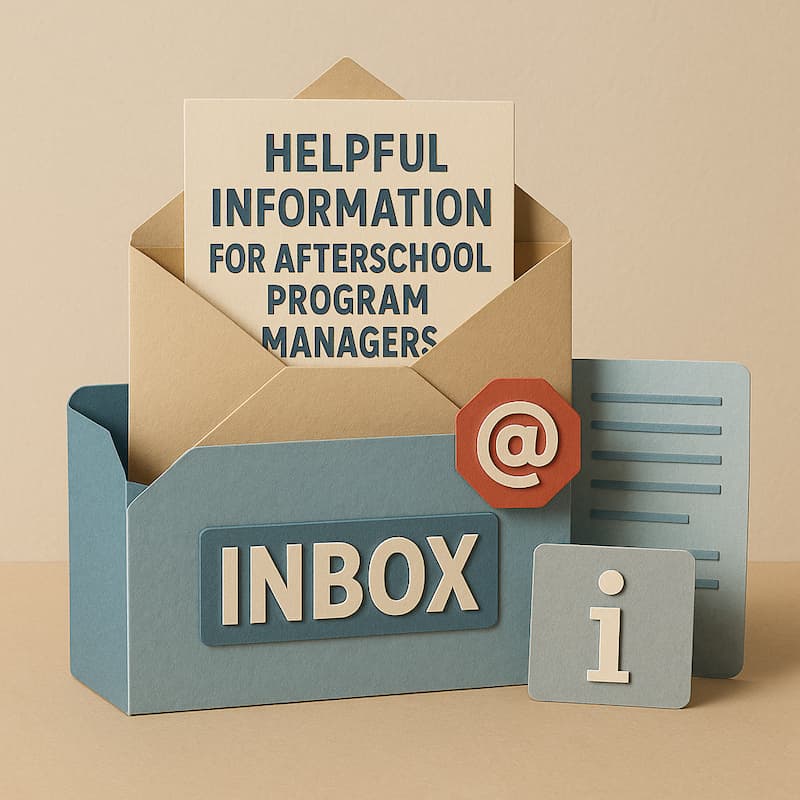“Is this tax deductible?” This question often makes program administrators pause. There can be a lot to unpack, and most educators are not trained in tax law. And answering wrong can be even worse than saying, “I don’t know.”
Yet regardless of your tax expertise, many parents will need guidance. Here’s how to provide clear answers about qualifying activities while maintaining appropriate professional boundaries. Your knowledge about tax benefits, including available tax credits, not only helps parents make informed decisions but also reassures them of the value of your program offerings.
Understanding Tax Benefits for Your Programs
Parents may qualify for two types of tax benefits: the Child and Dependent Care Credit and educational expense deductions, both of which consider qualifying expenses. Understanding the requirements for each will help you structure and explain your programs effectively.
The Child and Dependent Care Credit applies to programs that provide supervision while parents work or look for work. The credit involves using specific documentation, such as a tax return, to claim it (learn more about this credit on the IRS website). Qualifying programs include before and after-school care, day camps during school breaks, and supervised sports activities. Part of the criteria is that children under 13 years old, or dependents who physically or mentally cannot care for themselves, must be cared for. Parents should know that this credit specifically supports working families, therefore their earned income and employment status could affect eligibility.
Academic-focused activities that supplement existing school curriculum qualify for education expense deductions. These include tutoring programs, standardized test preparation courses, and special needs education services (when documented by medical professionals). Certain music and art instruction can also qualify when tied to the student’s educational goals. The key factor is demonstrating how your educational offering enhances or supplements traditional education.
What Parents Should Know
Parents often ask about expenses that don’t qualify for tax benefits. Equipment, uniforms, and supplies typically fall outside the scope of deductible costs. Transportation expenses and overnight camps also don’t qualify, regardless of their educational value. Programs need proper documentation to support any tax benefit claims. Many parents assume all educational activities qualify, so explaining these distinctions helps prevent misunderstandings during tax season.
Documentation Best Practices
Thorough documentation systems support both your program and parents’ tax needs. Creating a detailed payment document that helps separate qualifying expenses and non-qualifying fees from your state’s deduction rules can be helpful. Consider including your program’s tax identification number on all receipts and maintain accurate attendance records. If your program is staffed appropriately (learn more about staffing requirements), send parents comprehensive year-end payment summaries in January to simplify their tax return preparation. Implementing digital record-keeping systems that automatically categorize expenses and generate tax-ready summaries is also worth considering. Time to organize throughout the year pays off during tax season when parents request documentation.
Answering Common Questions
Parents frequently ask questions about specific expenses that they need to be aware of when filing taxes, and having prepared responses helps save time and maintain consistency. When discussing equipment costs, remind them that while program fees may qualify for tax benefits, equipment, and uniform expenses typically don’t. For transportation questions, clarify that these costs fall outside tax-deductible expenses. Regarding hobby classes, explain that tax benefits apply specifically to programs focused on supervision during work hours or educational enrichment that supplements school curriculum.
Many parents also ask about when payments were made and when they’re deductible since the school year spans two calendar years. Explain that tax benefits only apply to payments made within the tax year, regardless of when the services occur. Address questions about payment plans by sharing how to document partial payments for tax purposes.
Supporting Parents Effectively
Whenever possible, develop straightforward and predefined responses to more easily handle discussions on tax benefits professionally. A simple FAQ sheet about potential tax benefits serves as a helpful reference. Use a standard disclaimer about consulting tax professionals to maintain appropriate boundaries. Train your staff to provide consistent responses about tax benefits while keeping detailed payment and attendance records for each student in the program. For more insights on program management, consider exploring best practices for after-school programs.
Consider creating an annual communication calendar that reminds parents about tax documentation deadlines and requirements. Send gentle reminders about keeping receipts and tracking expenses throughout the year. This proactive approach reduces last-minute documentation requests and helps parents maximize their tax benefits.
It is incredibly helpful for you as a program administrator to be able to explain how your program(s) aligns with IRS requirements while providing clear documentation. This approach not only serves families well but also maintains professional boundaries. These guidelines will empower you to address tax benefit questions confidently while supporting your program and educating families. Always remind parents to consult their tax professional about their specific situation.








